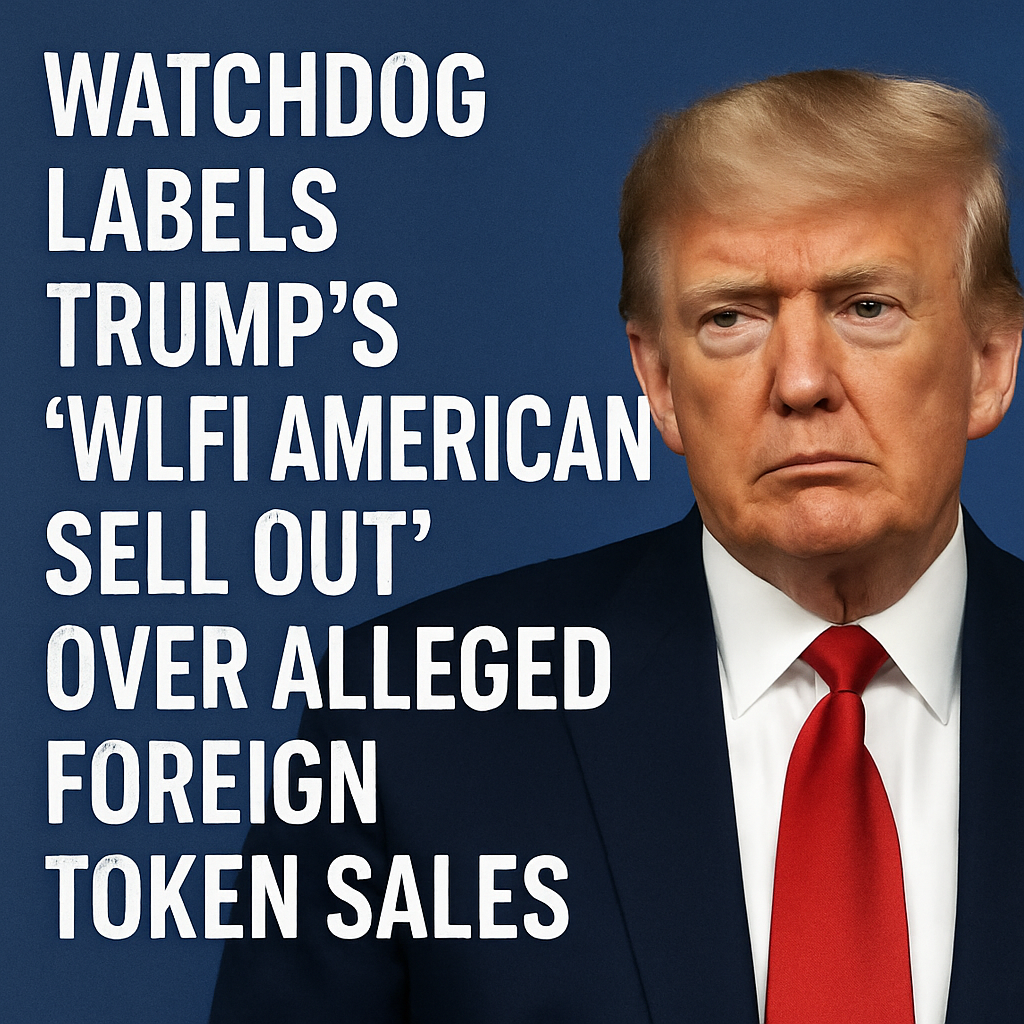Accountable.US released a report titled “American Sell-Out,” alleging that President Trump’s World Liberty Financial (WLFI) crypto venture conducted token sales to sanctioned foreign entities, including wallets linked to North Korea’s Lazarus Group and Iran-based users. The investigation identified specific transactions that circumvented sanctions and raised alarms over potential national security risks.
Notably, the report highlighted a $10,000 purchase on Inauguration Day by an address identified as “Shryder.eth,” which conducted 55 transactions with a Treasury-sanctioned Lazarus Group wallet. Blockchain analysis revealed that funds flowed between these wallets and accounts previously restricted by major DeFi platforms under anti-sanctions protocols, illustrating a breach of financial safeguards designed to prevent illicit financing of state-sponsored cyber activities.
Further scrutiny uncovered that nearly 3,500 WLFI tokens were sold to a user depositing over $26,000 on Iran’s largest crypto exchange, NoBitex.IR. On-chain data and social media profiles suggest this purchaser is linked to pro-Iran content and networks associated with sanctioned money-laundering services, including A7A5, a ruble-backed platform under U.S. sanctions for facilitating evasion of financial restrictions.
Accountable.US criticized WLFI’s delayed compliance efforts, noting that only five high-risk accounts were blacklisted as of September 5, months after the implicated transactions occurred. The report underscores that comprehensive screening and real-time monitoring protocols were not implemented promptly, enabling foreign actors to exploit the token distribution mechanism and potentially influence domestic policy through undisclosed holdings.
The findings prompted calls from lawmakers and cybersecurity experts for congressional investigations into the Trump family’s digital asset operations. Senator Elizabeth Warren demanded clarity on safeguarding measures and urged revisions to the pending GENIUS Act to strengthen oversight of politically connected crypto assets. National security analysts warn that if unchecked, such token sales could undermine sanctions enforcement and provide adversarial states with covert channels for influence and intelligence activities.

Comments (0)